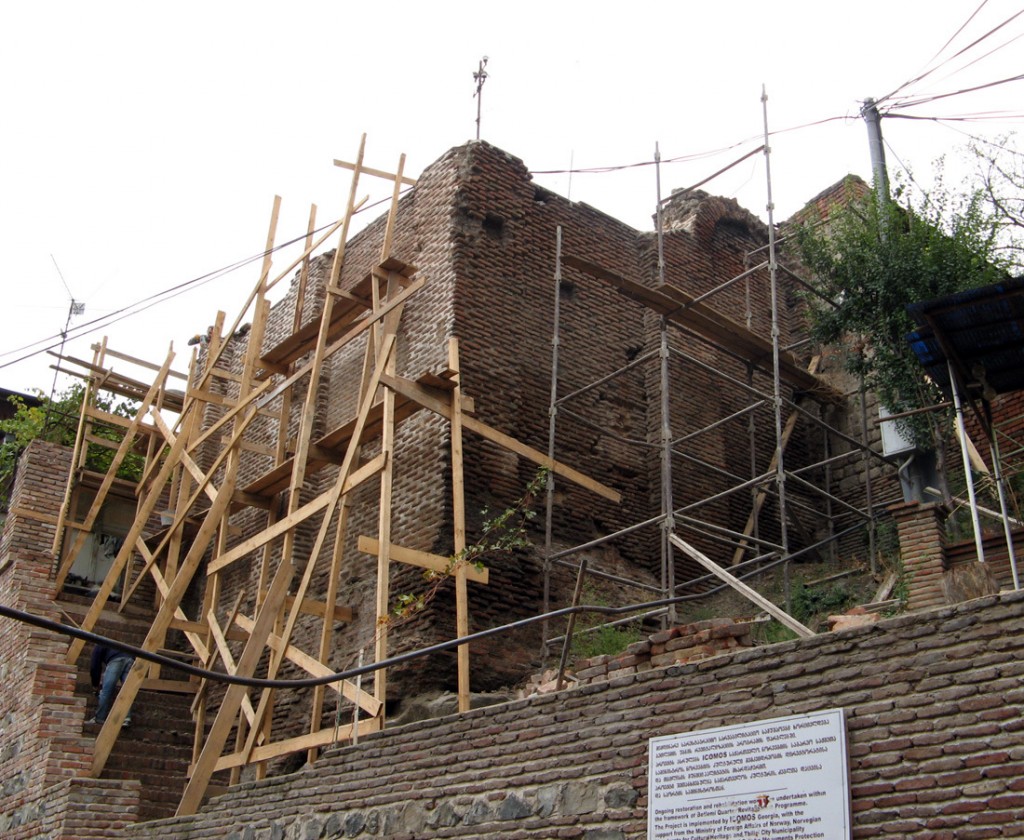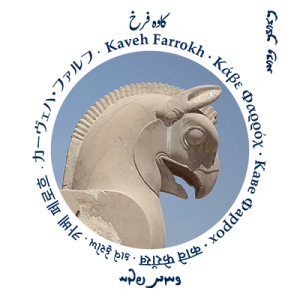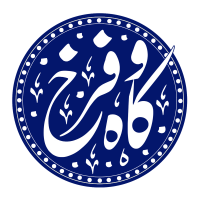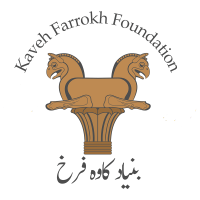Readers are introduced to the following comprehensive textbook edited by Dr. Shireen T. Hunter pertaining to the Southern Caucasus:
The New Geopolitics of the South Caucasus: Prospects for Regional Cooperation and Conflict Resolution
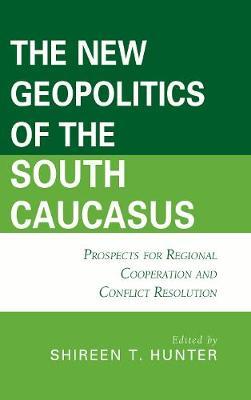
Publisher: Lexington Books
Series: Contemporary Central Asia: Societies, Politics, and Cultures
Hardcover: 304 pages
Release Date: September 22, 2017
ISBN-10: 1498564968
ISBN-13: 978-1498564960
Order textbook through Amazon.com or Lexington Books
The above volume features an impressive array of scholars and experts: Bulent Aras, Richard Giragosian, Mohammad Homayounvash, Shireen T. Hunter (also editor of the textbook), Richard Kauzlarich, Eldar Mamedov, Sergey Markedonov, Mohaiddin Mesbahi, Nona Mikhelidze, Ghia Nodia.
This textbook, which is essentially a collection of examinations of the three South Caucasian states’ economic, social and political evolution since their independence in 1991, is remarkable in its depth and breadth of examination of the geopolitical processes in the Southern Caucasus.

Shireen T. Hunter is a research professor in the Edmund A. Walsh School of Foreign Service at Georgetown University. History , Culture and Politics of Iran and the Persian Gulf, Central Asia and the Caucasus, Culture and Politics of Sh’iism, Islam and Politics, Muslim Communities in Europe and Russia, Theory of International Relations, Foreign Policy Analysis, Religion and International Affairs. For a comprehensive overview of Dr. Hunter’s expertise and publications see her profile at Georgetown University’s Walsh School of Foreign Service …
The textbook assesses the successes and failures of the Southern Caucasian states in their economic, social and political domains, especially their attempts at construction wholly new national identities and value systems in the endeavor at replacing Soviet-era cultural constructs. Readers are also encouraged (as a preamble to reading the book) to read the following report submitted by Dr. Shireen Hunter in a conference sponsored by the Carnegie Corporation of New York, held at the Center for Muslim-Christian Understanding in Georgetown University’s School of Foreign Service on October 28, 2016:
Shahram Akbarzadeh (Deakin University) provides the following assessment of Dr. Hunter’s text:
“Shireen T. Hunter has brought together a truly international team of experts to examine the complex geopolitics of the South Caucasus. The breadth and depth of analysis of key questions such as state-building, democracy, and the US–Russian rivalry present the reader with a rich and textured account of the region. This volume is a tour de force on the interplay of global and regional dynamics that have made the geopolitics of the South Caucasus a continuing source of challenges and opportunities.”
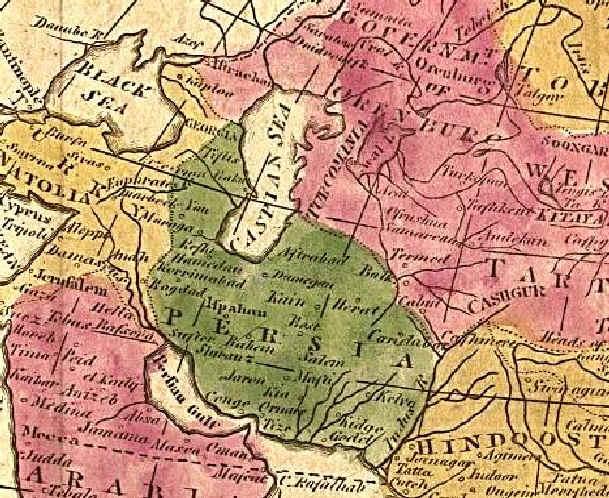
Map of Iran in 1805 before the invasions of Czarist Russia. Note the Caucasus, north of Iran and along the eastern Caspian littoral, which was Iranian territory. Note that the above map is one of many archival and cartographic sources demonstrating that there has been no “Greater Azerbaijan” allegedly “divided” between Qajar Iran and Tsarist Russia. Russia invaded Iran and forced her to cede the Caucasus. Iran also lost important eastern territories such as Herat, which broke away with British support (Source: CAIS).
The textbook clearly expostulates the complex interaction of domestic factors with international pressures and how these have impacted upon the new states. There is an exhaustive examination of regional forces neighboring the Southern Caucasus as well as international geopolitical forces (political, economic, etc.), especially with respect how the (often) divergent aims of these players (regional and international) are affecting the development trajectory of these states. The textbook also provides a comprehensive analysis for how the Southern Caucasian states can engage in resolving conflicts and to engage in constructive cooperation.
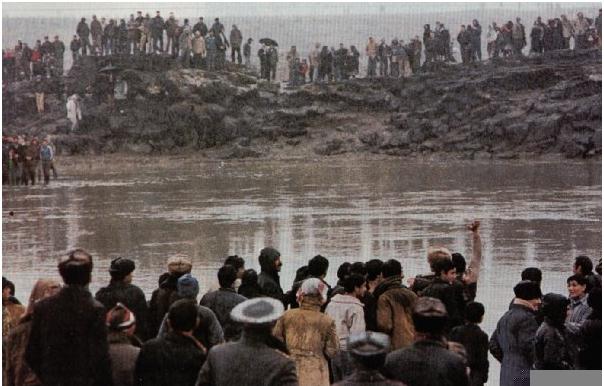
Greetings across the Araxes: Iranian Azeris greet the citizens of the ROA or Republic of Azerbaijan (known as Arran and the Khanates until 1918) in 1990. Interestingly many Western news reports at the time noted how many of the ROA were demanding re-unification with Iran, an ancient state with strong cultural and historical influences in the southern Caucasus.
Ronald Grigor (Suny, University of Michigan):
“Shireen T. Hunter, herself an expert in Caucasian and Central Asian affairs, has gathered an exceptional team of specialists on the local histories, recent experiences, and geopolitics affecting the three South Caucasian republics—Armenia, Azerbaijan, and Georgia. Geography may be destiny, but surviving and thriving in an area contested for centuries by Iran, Russia, and Turkey requires both diplomatic and political skills as well as good luck. In essays written with deep local knowledge and exceptional clarity, leading specialists guide the reader through the intricacies and complexities of the region. If you want to understand the past, present, and future of the South Caucasian peoples, this is the book with which to begin.”
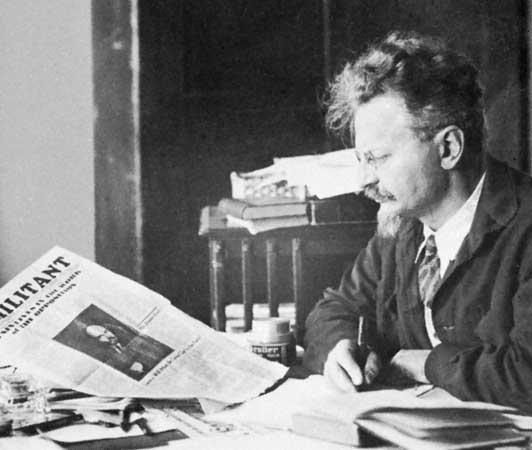
Leon Trotsky (1879-1940) one of the ideological founders of the former Soviet Union. Trotsky who was finally deported from Russia in 1929, was highly critical of Joseph Stalin’s falsification of history to suit political purposes, a process which he characterized as “Stalin’s School of Falsification”. One of the results of “Stalin’s History School” was the rewriting of Iran’s cultural, linguistic and historical legacy in the Caucasus. As noted by Dr. Nazrin Mehdiyova (herself originating from the Republic of Azerbaijan) has noted that “As a result John Evans (former US ambassador to Armenia): “This study puts today’s volatile South Caucasus in its proper historical and geopolitical context. Readers new to the subject will become conversant with the main issues; old hands will find much to ponder and discuss. Shireen T. Hunter’s own unique perspective is especially valuable.” Remains of an “Atash-kade” (Zoroastrian fire-temple) undergoing repairs in Georgia. The cultural ties between Iran and the Caucasus stretch back for thousands of years (Picture courtesy of Dr. David Khoupenia with caption from Kaveh Farrokh’s lectures at the University of British Columbia’s Continuing Studies Division – also presented at Stanford University’s WAIS 2006 Critical World Problems Conference Presentations on July 30-31, 2006). Finally readers are also encouraged to read the following selection of recent articles by Dr. Shireen T. Hunter: